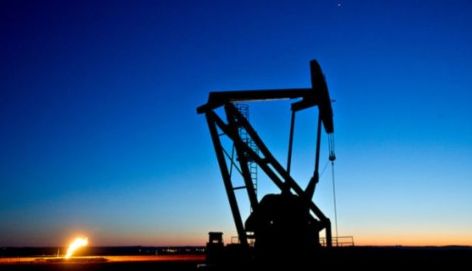(单词翻译:单击)
Children born near fracking sites are 25 percent more likely to weigh less than what is healthy at birth, according to a new study. Why this is happening isn't clear, but the researchers believe that it might have to do with environmental pollution, which may have negative health effects on mothers - and their babies.
一项新研究表明,在水力压裂站附近出生的小孩,他们的体重更有可能低于健康值(可能性为25%)。目前导致这一情况的原因尚不清楚,但研究人员认为这可能与环境污染有关,环境污染可能会对母亲--以及她们的孩子--带来消极的健康影响。
Researchers analyzed data from more than 1 million births in Pennsylvania from 2004 to 2013. Babies born to mothers living up to 1.8 miles from a fracking site were found to have poorer health, and babies born within 0.6 miles saw the largest impacts, according to a study published in Science Advances. The findings could have implications for where fracking is authorized.
研究人员分析了从2004年至2013年出生在宾夕法尼亚州的100多万婴儿的数据。母亲生活在离水力压裂站1.8英里的地方,她们生出来的小孩健康状况较差;母亲生活在离水力压裂站0.6英里的地方,她们的小孩受到的影响最大,发表在Science Advances期刊上的一项研究表示。这些研究可能会影响水力压裂站的建造地点。

THE SHALE GAS BOOM COMES WITH SOME SERIOUS SIDE EFFECTS
页岩气热潮会带来一些严重的副作用
Previous studies have shown that fracking causes air pollution that can harm babies, and that living nearby fracking sites is linked to premature births. Today's study adds to the evidence that the shale gas boom comes with some serious side effects. "There's growing evidence that living close to unconventional natural gas development might have implications for population health," says Joan Casey, a postdoctoral researcher at the University of California, Berkeley, who was not involved in the research. "This is one of the largest studies to date showing that."
先前的研究已经表明:水力压裂站会产生有害婴儿的空气污染,生活在水力压裂站附近或导致早产。今天的研究提供了进一步的证据,表明页岩气热潮会带来一些严重的副作用。"越来越多的证据表明,生活在非传统天然气开发点或能影响人们的身体健康,"加州大学伯克利分校的博士后研究员琼·凯西说道,她没有参与到该项研究。"这是至今为止表明这一问题的最大研究之一。"
Fracking, short for hydraulic fracturing, uses a high-pressure mixture of water, sand, and chemicals to crack sediment layers so that oil and natural gas can be tapped. The technique has revolutionized the energy landscape in the US, lowering energy prices and reducing dependance on coal. But it's also alarmed scientists and activists alike for its potential to pollute groundwater, affect air quality, and cause earthquakes.
水力压裂站利用水、沙和化学物质的高压混合物破碎沉积层,以开采石油和天然气。这一技术彻底改变了美国的能源格局、降低了能源价格、减少了对煤炭的依赖。但同时也在警告科学家和活动家,该种方法可能会污染地下水、影响空气质量、导致地震。
As several states like New York and Maryland have banned fracking, scientists are trying to figure out what impacts the controversial extraction technique has on health - especially when it comes to newborns. A 2014 study, for example, found that children born to mothers living nearby fracking sites may have a higher risk of heart defects. "Looking at the impacts of these chemicals on the most vulnerable population, which is unborn children, and finding these effects is really concerning," says Carol Kwiatkowski, the executive director of the nonprofit research institute The Endocrine Disruption Exchange.
纽约和马里兰州等几个州已经禁止建造水力压裂站,科学家正试图弄清有争议的提取技术对身体带来的影响--尤其是对新生儿的影响。例如,2014年的一项研究发现,对于生活在水力压裂站附近的母亲而言,她们生出的孩子可能有较高的心脏缺陷风险。"研究这些化学物质对最为脆弱的人口,也就是未出生婴儿的影响,发现这些影响的确令人担忧,"非盈利研究机构The Endocrine Disruption Exchange的执行主任卡罗·亚特科夫斯基说道。
译文属可可原创,仅供学习交流使用,未经许可请勿转载


